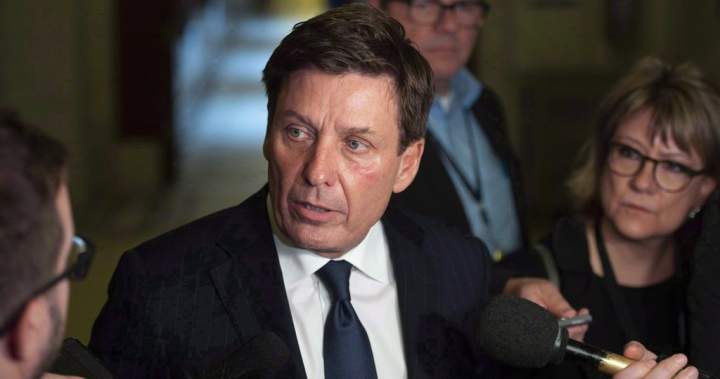In a calculated move that signals a shift in Ottawa’s Senate strategy, Prime Minister Justin Trudeau has appointed Quebec lawyer and former provincial cabinet minister Pierre Moreau as the new Government Leader in the Senate. The selection, announced Tuesday, fills a critical vacancy that had persisted for months following the retirement of Senator Marc Gold in January.
Moreau, who served as a Liberal member of Quebec’s National Assembly from 2008 to 2018, brings substantial legislative experience to the role after holding multiple cabinet positions in the provincial government, including Municipal Affairs, Treasury Board, and Energy portfolios. His appointment comes at a particularly challenging moment for the Trudeau government, which faces the complex task of navigating legislation through an increasingly independent upper chamber.
“The Senate’s role in our parliamentary democracy is vital,” Moreau stated following his appointment. “I look forward to working collaboratively with all senators to advance legislation that serves Canadians while respecting the Senate’s essential function of sober second thought.”
The position, formally known as the Government Representative in the Senate, has evolved significantly since Trudeau’s 2015 reform initiative that established a more independent appointment process. Unlike traditional government Senate leaders who managed party discipline, Moreau must now build consensus among the largely independent senators who populate the chamber.
Parliamentary experts note the strategic timing of this appointment. “The government faces a legislative backlog and needs someone who can effectively shepherd priority bills through the Senate,” said Dr. Emmett Richardson, political scientist at the University of Toronto. “Moreau’s experience negotiating complex files in Quebec politics makes him well-suited for building the necessary coalitions.”
Opposition critics have questioned the selection, with Conservative Senate Leader Don Plett suggesting that “appointing a former provincial Liberal politician undermines the supposed independence of the modern Senate.” The Bloc Québécois, however, has cautiously welcomed the appointment of a Quebecer to the influential position.
Moreau inherits several pressing challenges, including managing the Senate’s review of controversial bills on digital regulation and environmental policy. The upper chamber has increasingly asserted its independence in recent years, amending nearly 30 percent of government legislation in the previous session – a marked increase from historical patterns.
The appointment also comes amid broader tensions in Canadian politics, with polls showing the Liberals trailing the Conservatives by significant margins. Political analysts suggest Moreau’s selection reflects the government’s need for a skilled negotiator who can prevent Senate delays from further complicating their pre-election agenda.
“Effective Senate management has become critical to this government’s ability to deliver on its priorities,” noted Senate historian Dr. Claudia Matheson. “The days of rubber-stamping legislation are long gone, and Moreau will need to engage substantively with independent senators who demand meaningful consultation.”
As Ottawa observers assess this latest appointment, the fundamental question remains: Can Moreau successfully balance the government’s legislative priorities with the Senate’s increasingly assertive independence, or does his selection signal a subtle attempt to reassert party influence over the upper chamber’s deliberations?























